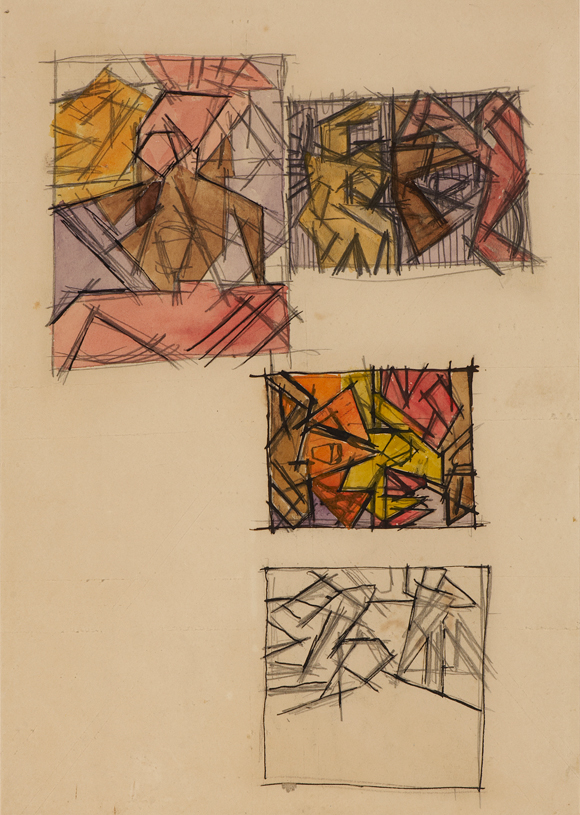Contemporary artist Johanna Bolton is currently doing a residency at the Borough Road Gallery archive and art store. This is her second blog exploring the collection and working with the LSBU archives.
Last Friday, archivist Ruth MacLeod showed me the records from the Arts Department of Borough Polytechnic (as London South Bank University was then known) at the time David Bomberg was teaching (1946-53). There was little mentioned about him specifically, but some records that help get a feeling for life in the art department at the time.
As a Polytechnic the department’s focus was on commercial art, creating a freedom from the traditions followed in the Fine Arts departments elsewhere. Bomberg taught a few daytime life drawing classes, but mainly evening classes in life drawing, painting and composition. Records show a large uptake of art evening classes, and one year there was a course tantalizingly named ‘Drawing and painting from memory and knowledge’. There is a line in the student magazine about the people who come in the evening and ‘splash more paint on the walls than on the canvases’, and an entertaining article about the humiliation of being corrected by an unnamed life drawing teacher (there were two life drawing teachers at the time, one of them Bomberg): “...try to remember he is an Aesthete and therefore cannot be expected to know any better.”
But what the visit to the archive really brought home more than anything was how recent this was after WW2, the second war that Bomberg had lived through. His suffering in the trenches of the Great War had affected his practice dramatically, from radical abstractions in the style of Futurism and Vorticism to a more figurative, expressionistic style.
Of course WW2 also had a major impact on the art works of all the artists in the Borough Road group.
The archive did have a large folder with records on Bomberg’s contemporary teacher collegue Mr Thomas Liverton. In a hand written note from 20th October 1945 he writes that he has been discharged from the RAF, and was much looking forward to returning to Borough Polytechnic in November, but felt ‘rather in need of a rest.’ It is strange to think how quietly that generation went through their traumatic experiences.
Traces of Trauma? Works by David Bomberg from before, between and after the two world wars, in the Borough Road collection archive. (There is only one work from before the Great War in the collection).









